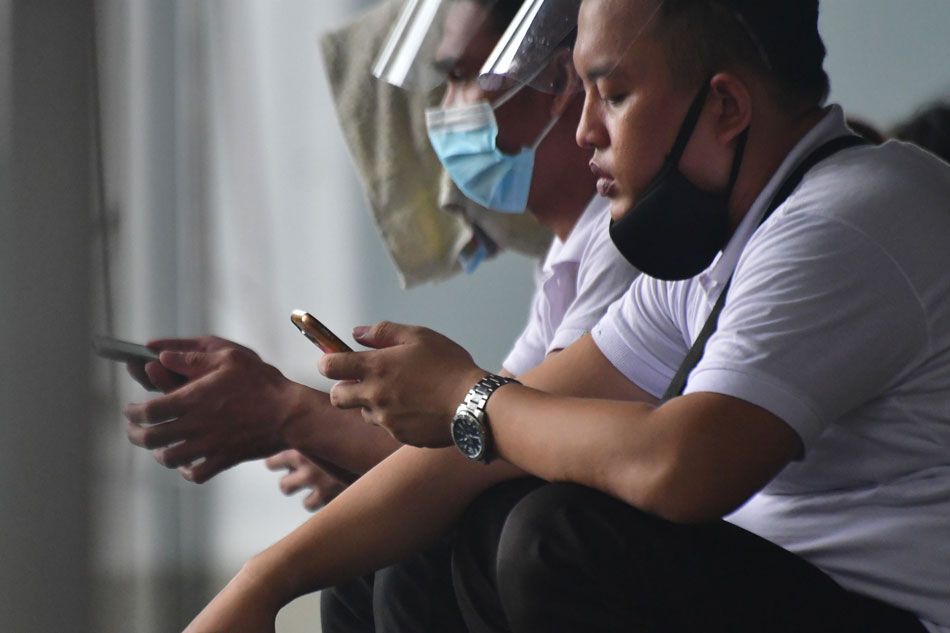Practice 'cyber hygiene': BPI reminds public as online scams surge | ABS-CBN
ADVERTISEMENT

Welcome, Kapamilya! We use cookies to improve your browsing experience. Continuing to use this site means you agree to our use of cookies. Tell me more!
Practice 'cyber hygiene': BPI reminds public as online scams surge
Practice 'cyber hygiene': BPI reminds public as online scams surge
ABS-CBN News
Published Sep 04, 2020 03:19 PM PHT
MANILA - The Bank of the Philippine Islands (BPI) said Friday consumers should practice cyber hygiene to protect themselves from cyber fraud following a surge in phishing sites using coronavirus-related keywords.
MANILA - The Bank of the Philippine Islands (BPI) said Friday consumers should practice cyber hygiene to protect themselves from cyber fraud following a surge in phishing sites using coronavirus-related keywords.
Phishing is a type of online scam that aims to victimize consumers by collecting their personal information and accessing their accounts through various channels such as emails and voice calls.
Phishing is a type of online scam that aims to victimize consumers by collecting their personal information and accessing their accounts through various channels such as emails and voice calls.
Around 1.5 million phishing sites are created monthly worldwide, BPI said in a statement, citing a recent Kaspersky Lab report.
Around 1.5 million phishing sites are created monthly worldwide, BPI said in a statement, citing a recent Kaspersky Lab report.
The study also noted Filipinos are "more likely to fall victims to scams" compared to its Southeast Asian neighbors.
The study also noted Filipinos are "more likely to fall victims to scams" compared to its Southeast Asian neighbors.
ADVERTISEMENT
COVID-19 themes such as those that offer cure, preferential priority for vaccines and other news are the most common in phishing emails, the bank said.
COVID-19 themes such as those that offer cure, preferential priority for vaccines and other news are the most common in phishing emails, the bank said.
“The easy migration of everyday activities online, particularly purchases and other transactional tasks, has been a great help in improving the quality of life for society. Unfortunately, scammers also saw an opportunity to step up their cybercrime schemes,” said BPI Enterprise Information Security Officer and Data Protection Officer Jonathan John Paz.
“The easy migration of everyday activities online, particularly purchases and other transactional tasks, has been a great help in improving the quality of life for society. Unfortunately, scammers also saw an opportunity to step up their cybercrime schemes,” said BPI Enterprise Information Security Officer and Data Protection Officer Jonathan John Paz.
Consumers should activate online banking security features, avoid oversharing in social media, avoid using unprotected networks such as free public WiFi, use separate email for ecommerce and banking, and avoid opening suspicious files, BPI said.
Consumers should activate online banking security features, avoid oversharing in social media, avoid using unprotected networks such as free public WiFi, use separate email for ecommerce and banking, and avoid opening suspicious files, BPI said.
Clients should familiarize themselves with cyber hygiene and should make it a habit to visit official social media pages of their banks for any tips, Paz said.
Clients should familiarize themselves with cyber hygiene and should make it a habit to visit official social media pages of their banks for any tips, Paz said.
Other banks as well as the Bangko Sentral ng Pilipinas have also urged the public to be more vigilant in transacting online, especially today when most people turn to digital for their daily needs.
Other banks as well as the Bangko Sentral ng Pilipinas have also urged the public to be more vigilant in transacting online, especially today when most people turn to digital for their daily needs.
Read More:
ANC
ANC Top
BPI
cyberfraud
fraudsters
phishing
phishing scam
phishing email
coronavirus phishing scam
COVID-19 related scam
ADVERTISEMENT
ADVERTISEMENT



